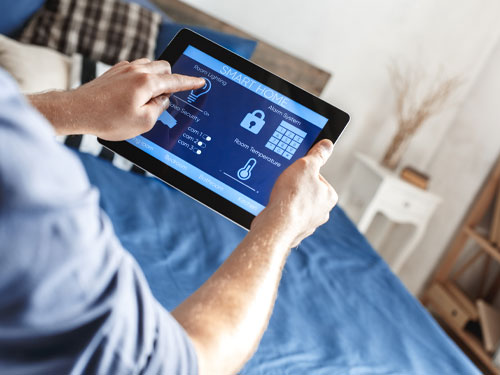How Smart Should My Home Be?
Smart homes are becoming a necessity rather than a luxury as we interact with new technologies in nearly every aspect of our lives. But just how smart should your home be? In this blog, we will explore the benefits of smart homes and discuss the various devices and features that can elevate your living experience.
What exactly is a smart home?
A smart home is a living space where various electronic devices and systems are connected to automate everyday tasks. It provides a seamless interaction between occupants and their environment by utilizing advanced technology like artificial intelligence and devices with a built-in voice assistant.
It ultimately leads to enhanced comfort, increased energy efficiency, improved security, and overall convenience for the homeowner. Best of all, smart home gadgets are controlled by your smartphone or tablet!
But, it’s important to weigh both the potential benefits and drawbacks of this modern way of living when considering whether a smart home is right for you and just how smart your home should be.

What are the benefits of having a smart home?
Introducing smart devices into your home can benefit your lifestyle by adding automation, comfort, and convenience. Home automation saves time and effort by allowing you to control temperature, lighting, and security without leaving your seat. Smart products help users monitor energy costs and home security and can automate daily tasks like watering plants or feeding pets.
A smart home provides peace of mind as users can remotely access and monitor their homes from anywhere in the world using their computers, smartphones, or tablets. Moreover, a smart home can increase its value, lower utility bills, and make it more eco-friendly.
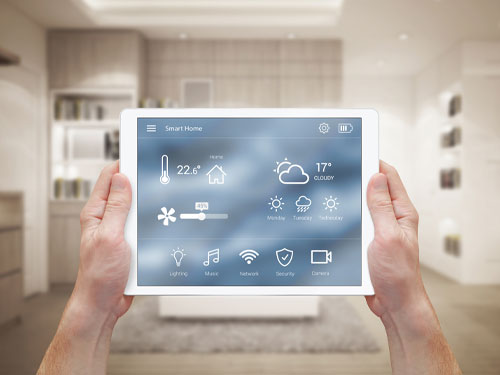
Get Smarter About Smart Home Gadgets
Among the smart technologies frequently found in smart homes are smart thermostats, smart light bulbs, smart smoke detectors, smart security cameras, smart door locks, smart speakers, and voice assistants. Let’s take a quick look at each of these smart devices.
Smart Thermostats: A smart thermostat lets you remotely control your home’s heating and cooling system from your smartphone or via voice command. It can learn your preferences and automatically adjust the temperature based on your schedule.
Smart Lighting: A smart lighting system allows you to control the lights in your house with your voice or smartphone. It can dim the bright lights or change the color of the bulbs, and you can turn the lights on or off remotely.
Smart Security Cameras: Smart security cameras let you monitor your home from anywhere using your smartphone, tablet, or computer. The camera can detect motion and send alerts when there is any unusual activity in your house. Your smart security camera can also connect to a video or smart doorbell.
Smart Door Locks: Smart door locks allow you to lock or unlock your doors remotely using your smartphone or voice command. They also provide keyless entry to your home, and you can grant convenient, temporary access to visitors.
Smart Plugs and Switches: Utilizing your home’s Wi-Fi, smart plugs and switches can control any device or home appliance through voice or smartphone commands. You can turn them on or off remotely and even schedule them to turn on at specific times.
Smart Speaker and Voice Assistant: Smart speakers and voice assistants enable you to control your smart home through voice commands. You can ask them to play music or podcasts, manage your smart devices, or order groceries online.
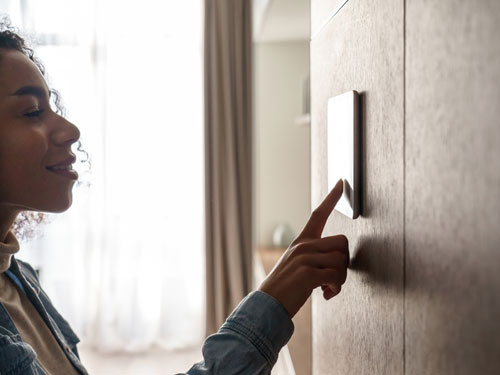
Factors to consider when deciding how smart your home should be
Since the pandemic, Americans have been spending more time in their homes. So, why not make the most of it by making your home smart? Before deciding how smart your home should be, you should consider. Here are some you should keep in mind:
Compatibility
Some smart home features require specific operating factors, such as high-speed internet or a compatible voice assistant device. Ensure you have these prerequisites and know that other smart devices and add-ons can get costly.
Security
Smart technology has some vulnerabilities and can make your connected home vulnerable to cyber threats. Ensure the smart technology you plan to use has robust security features.
Ease of Use
It’s essential to consider how easy it is to manage smart home products. The interface should be user-friendly. Remember, only some people in your home may be as tech-savvy as you. Smart home gadgets should enhance your life, not make things more complicated.
Future-Proofing
Smart home technology is continually evolving; therefore, investing in devices that allow for future upgrades and expansions is best.
It’s important to weigh each factor and determine what’s essential before investing in smart home technology. By doing so, you can make informed decisions that add value to your home and lifestyle.
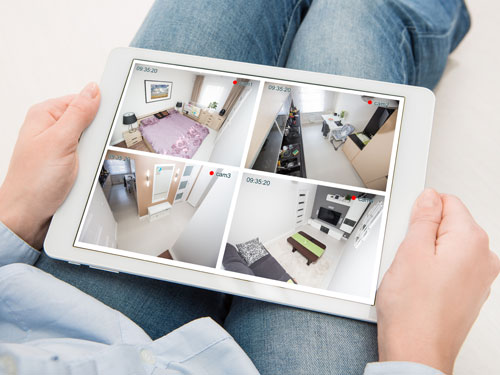
How Smart is too Smart
How smart you want your home to be can vary based on your lifestyle and needs. While many homeowners choose to go all-in and invest in a whole smart home system, others prefer to start small with just a few basic devices. Here are some variations of how to make your home smarter:
Basic Smart Home
This level of a smart home may include a few basic devices like a smart thermostat or smart light bulbs. These devices are controlled using smartphone apps or voice commands, but the features are limited.
Mid-Range Smart Home
This level of the smart home includes several smart devices, such as smart speakers, smart cameras or door locks, and a smart hub to connect all of them. This level of smart home provides greater convenience, security, and control over your home.
Advanced Smart Home
An advanced smart home contains several other smart home devices that work together harmoniously to automate functions in different rooms throughout the house. Its features can range from a smart irrigation system or smart appliances to alert you when your groceries are running low.
Fully Automated Smart Home
This level of the smart home provides the highest level of convenience, including complete home automation, real-time monitoring, and control of every connected device in your home. This type of smart home is expensive and requires professional installation for complete automated control of your home.
The different levels of smart homes provide different features and advantages at varying prices. Homeowners can decide which level of smart home technology best meets their goals for functionality, security, accessibility, or convenience of their homes.
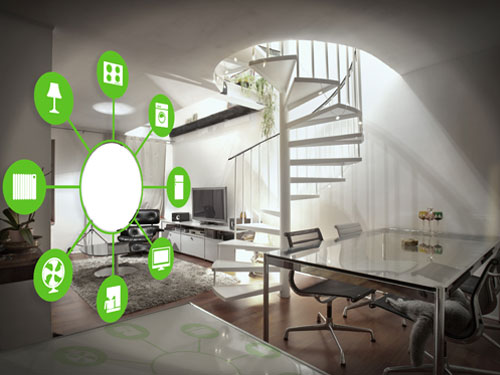
Cost Considerations
When considering making your home a smart home, there are several cost considerations to consider. Smart gadgets can vary in price, so it is essential to have a firm budget in mind. Start small and prioritize what features will add the most value for you and your family.
Upfront Costs: Some smart home devices can be costly, and investing in a comprehensive smart home automation system requires a significant upfront investment.
Ongoing Costs: Smart homes require internet connectivity, which can increase internet fees for additional devices connected to the network.
Appliances Upgrade Costs: Smart home appliances with connectivity features, for example, refrigerators, washing machines, and microwaves, among others, may be more expensive than their non-smart alternatives.
Installation Costs: While some smart devices are straightforward, you may require assistance or professional installation for more complicated ones.
Maintenance Costs: Smart home devices require regular maintenance and upgrades or may even require replacement when their lifespan is over.
Compatibility costs: Some smart devices require specific upgrades to work optimally, such as a high-speed internet connection or compatible voice assistant devices.
Security Costs: Smart home devices also require advanced security systems that may have costs in buying more advanced devices or services to manage cybersecurity threats.

Are you ready for a smart home?
How smart homes have changed our behavior and how we interact with our environments is fascinating. It’s also ever-changing as technology evolves. So, in conclusion, consider the numerous benefits of smart home technology, such as increased convenience, energy efficiency, home security, and more. But be sure to weigh the pros and cons carefully.
Starting small with basic devices, such as investing in smart light or a smart thermostat, is always an excellent starting point before committing to more elaborate smart home experiences.
By considering budget, technical know-how, and needs, homeowners can make informed decisions about how smart their homes should be. To learn more about smart homes and the benefits to your family, contact the team of professionals at Rockford Homes.
